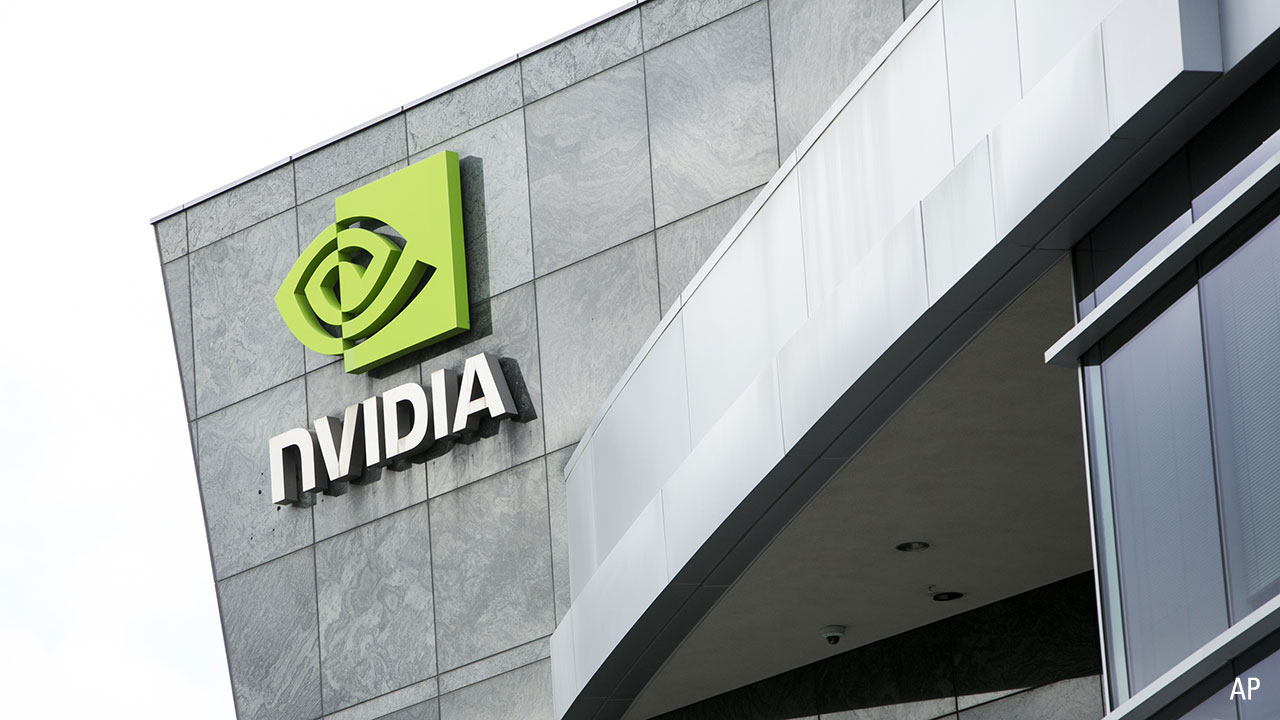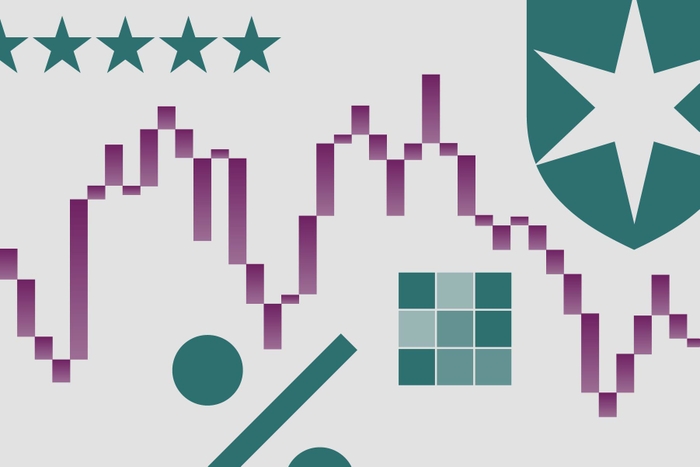
The story of global equity markets over the past 10-plus years can be encapsulated by two big-name stocks: Nestle and Nvidia.
The former is the well-known Swiss food and beverage manufacturer that employs nearly 300,000. Nestle (SWX:NESN) has a forward dividend yield of roughly 2.4 per cent, has grown earnings at about a 5.0 per cent rate, and is trading at a reasonable but healthy trailing price/earnings ratio of around 22.
Nvidia (NAS:NVDA), for its part, is a US-based technology company, the leading designer of graphics-processing units used for gaming and cloud applications. It has fewer than 14,000 employees. Nvidia sports a meagre dividend yield of barely 0.1 per cent and a relatively lofty P/E ratio of 85 times trailing earnings, but it has been growing earnings at a 32 per cent rate.
The past decade belonged to the Nvidias of the world. In 2010, Nvidia was the 731st-largest constituent in the Morningstar Global Markets Index and Nestle was the fourth. As of year-end 2020, Nestle had slipped to the 17th slot, but more tellingly, Nvidia clocked in at number 20 with help from a 122 per cent return last year. (Nestle was up 14.8 per cent in 2020.)
Nvidia's meteoric growth represents a period in which global equity markets were dominated by high-priced technology-related stocks low on dividends, mostly from the United States and China. As a recently published report looking at changes to Morningstar Equity Indexes demonstrates, equity markets today bear resemblance to the late 1990s. What followed that boom was a decade led by stocks outside the US and value over growth.

The Morningstar US Market Index
As the pandemic wreaked havoc on many economic sectors, while benefiting many of the largest stocks, how much of an impact did 2020's trends have on the market's profile?
Last year saw the technology sector's weight within the Morningstar US Market Index rise by 5 percentage points to one fourth of the index. The consumer cyclical sector also saw its weight rise thanks to Amazon.com (NAS:AMZN) and Tesla (NAS:TSLA). Meanwhile, energy's share within the index fell by nearly half, to just 2.1 per cent. Amazingly, energy stocks represented 11.3 per cent of index weight in 2010. Many other sectors saw their weights fall in 2020, including financial services, healthcare, industrials, real estate, and utilities. November saw promising vaccine results lift economically sensitive stocks, but only time will tell if it was a lasting sector rotation.
MORE ON THIS TOPIC: Tesla Finally Joins the S&P 500
The index's yield fell, and its valuation rose in 2020. The Morningstar US Market Index's P/E finished the year well above that of other regions.

Source: Morningstar Indexes.
The US equity market has also become highly concentrated. The Morningstar US Market Index's top 10 holdings represent nearly one fourth of the index's weight, up from less than 20 per cent in 2019 and below 16 per cent in 2010. The top 10's share of the Morningstar US Market Index exceeds even the 22 per cent level of late 1999.
The US index's top 10 constituents as of December 2020 were mostly tech-related, with the exceptions of Berkshire Hathaway (NYS:BRK.B), Johnson & Johnson (NYS:JNJ), and JPMorgan Chase (NYS:JPM). The longevity of those three companies is remarkable. Johnson & Johnson and JPMorgan Chase were also in 2010's top 10.
Tesla joined the index's top 10 for the first time in 2020. It only came to market in mid-2010, and Facebook (NAS:FB) was not yet public in 2010.

Global equity markets in 2020: More companies from the US, China, and the tech sector
On a global basis, too, the pandemic-driven market of 2020 only accelerated long-running trends. Technology-related stocks, especially in the US and China, gained market share thanks to work-from-home/shop-from-home behavior. Losers included the energy sector and financial services.
Europe has seen its relative position within global equity markets slip. The Morningstar Global Markets Index's top 10 contained two European companies in 2010 but none in 2020. The European equity market has been far less dynamic than those in the US or Asia-Pacific, as sector weights have been more stable and concentration has not meaningfully increased. The United Kingdom is still Europe's largest market, but its position has slipped. Meanwhile, within emerging markets, the dramatic rise of China has been mirrored by a decline in Brazil, Russia, and South Africa, all of which are linked to natural resources.

Where do the markets go from here?
Change is the only constant—in life and investing. Global equity markets at the end of 2021 may look like today's markets or be completely upended. The long-term outlook is even hazier. Equity market leaders of 2030 may not even be public companies today, as the meteoric rise of Facebook, Alibaba (NYS:BABA), Tencent, and Tesla over the past decade demonstrates. Meanwhile, it is hardly inevitable that today's market leaders will diminish. Nestle has proved remarkably enduring, as have companies like Toyota (NYS:TM), Johnson & Johnson, and Roche (SWX:ROG).
Longtime contrarians will testify that just because a sector is currently depressed does not mean that rebound is imminent. The traditional energy sector could face permanent impairment as the world transitions to renewable energy sources, while technology could continue to benefit from global digitization.
With the caveat that share prices can diverge from intrinsic values for extended periods, here are some insights at the start of 2021 based on Morningstar's stock valuation metrics.
- Stocks in value sectors, most significantly energy, present the best valuation opportunity going forward.
- Expectations for the technology sector implied by current valuations may be overly optimistic. Many tech-related market leaders, including Apple (NAS:AAPL), Tesla, and Nvidia, are considered overvalued.
- On a geographic basis, valuations look more attractive outside the United States. Europe presents some valuation opportunities, including the beaten-down U.K. market. Japan holds areas of opportunity as well.
- Some emerging markets look attractively valued, including resources-linked Russia and Brazil.










.png)













